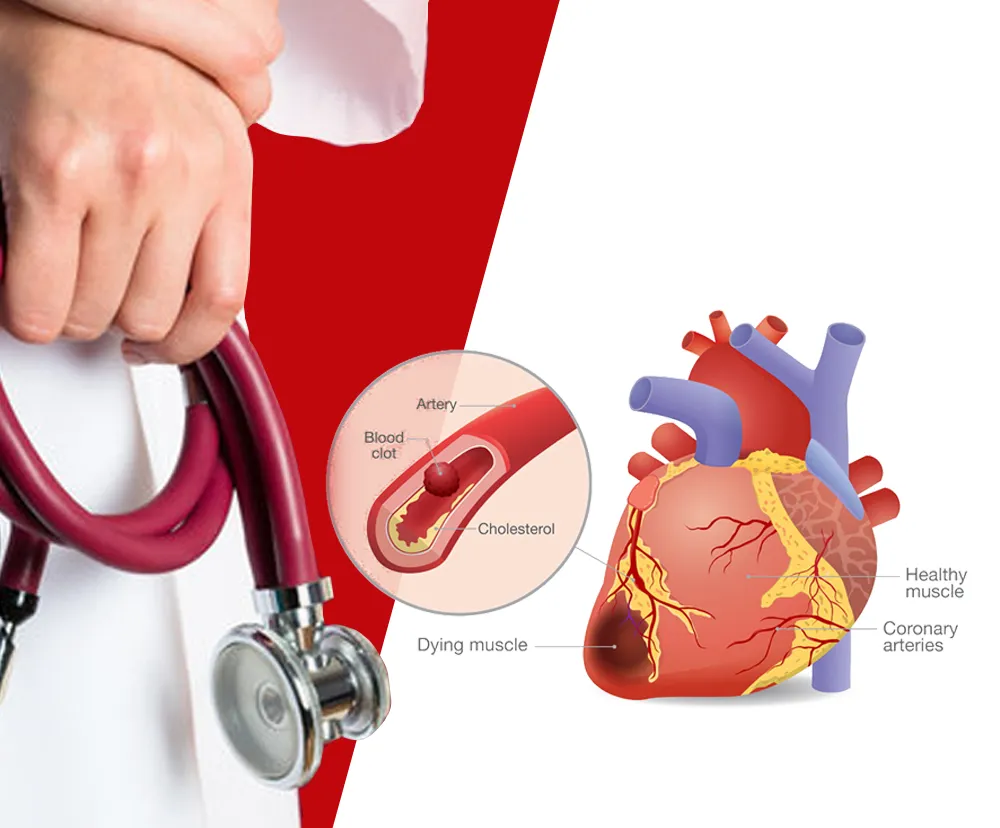What are the top lifestyle recommendations for heart attack prevention?
What are the top lifestyle recommendations for heart attack prevention?
Introduction
Misconceptions and myths about heart disease and lifestyle abound, especially on the internet. The impact of such misinformation is serious, and in many instances may have had adverse consequences. Here is a round up of common myths along with expert advice on lifestyle recommendations for heart attack prevention. Simple steps will go a long way in ensuring that you and your family prevent or reduce risk of heart attacks.
What suggestion do you give to prevent heart attack?
There are multiple suggestions for prevention of heart attack – screening, genetic testing, medications, lifestyle modifications, treatment of underlying health conditions. However, the first action on your part should be awareness of myths. You need to dispel these wrong notions first and follow expert advice. Let’s look at some of the common myths.
- I am fit, I need not worry – Your physical fitness is good, and important for the health of your heart. However, it does not protect you from the risk of heart attack. Because there are other factors like your diet, genetics, and lifestyle.
- I am young, only old people are at risk – Young people are increasingly prone to heart attacks as can be seen from multiple news reports daily. Though it is true that risk increases with age, young people are also at risk due to obesity, smoking, diabetes, or family history.
- There is family history of heart disease, and I am doomed – This is a wrong assumption. Though family history of heart disease will put you at increased risk, you can greatly reduce the risk. You will need to follow a balanced diet, exercise regularly, quit smoking, and adopt a proper lifestyle.
- I got myself tested, I am diagnosed with heart disease, there is nothing that can be done – If you have been diagnosed with heart disease, it is not the end. There are multiple options available to improve your heart health and reduce your risk of heart attacks. This includes following lifestyle recommendations for heart attack prevention, quitting smoking, adopting a heart-healthy diet, with a good exercise regimen. Medications and procedures also considerably mitigate risks.
- My gender is feminine, since the risk is only for men, there is no reason for alarm – Both men and women are equally at risk of heart attack. The major difference is the different symptoms experienced by men women. As a result of these changes in symptoms, people end up remaining undiagnosed.
- I take vitamins and supplements, and therefore I am not at risk – A balanced diet is good for heart health, and this means more fruits, vegetables, whole grains, and lean proteins. Presently, there is no scientific evidence to claim that supplements offer protection from heart attack.
- I take red wine, and this is good for my heart – Some benefits may accrue from moderate consumption; however, it is never a recommendation for everyone. This is because there is a possibility of other risks from such consumption, which may indirectly result in putting you at risk of heart attack.
- I have low cholesterol levels, and therefore I am not at risk – High cholesterol is a contributing factor to high risk of heart attack. However, there are other factors like blood pressure, smoking, genetics and diabetes. By having low cholesterol levels, you are not free from these risks, and it is necessary to assess all your risk factors, and follow lifestyle recommendations for heart attack prevention.
- I avoid all fats and this is the best decision – There are healthy fats, that can actually protect your heart. This includes fat in avocados, nuts, seeds, and fish. Instead of avoiding all fats, the best option is to reduce intake of saturated fats and stay away from trans fats, while consuming healthy fats.
- I exercise intensely and therefore I will not get a heart attack – There are multiple examples of people experiencing a heart attack in gyms. There are numerous examples of fully fit, young people having a heart attack. It is true that moderate exercise performed consistently will contribute to heart health. However, this is not a guarantee from risk due to other factors.
What are the best recommendations to prevent heart attack?
The following recommendations will help you reduce risk of heart attack. These are broad recommendations, and the actions that work for you will be best determined by a specialist. This will be based on your age, gender, your risk level, your overall health, and underlying conditions. Therefore, follow lifestyle recommendations for heart attack prevention with proper medical supervision or recommendations.
- Heart-healthy diet – Fruits, vegetables, whole grains, and lean proteins. Choose healthy fats such as avocados, nuts, seeds, and olive oil. Cut down saturated fats and avoid trans fats. Similarly, cut down on salt intake and sugary foods or beverages.
- Exercise – At least one and a half hour per week. This should include exercises that are either moderate or slightly intense, depending on your age and gender.
- Right weight – Track your weight and body mass index.
- Quit smoking – Apart from quitting smoking, ensure that you avoid places where you may be exposed to secondhand smoke.
- Periodic screenings – Check your blood pressure, cholesterol levels and risk of diabetes. Depending on the tests, take suitable remedial measures.
- Existing conditions – Treat chronic conditions such as hypertension, high cholesterol, and diabetes.
Before you start any lifestyle recommendations for heart attack prevention, it is ideal to go in for a proper screening, and genetic testing. This will help you zero in on genetic component of future or lifetime risk of heart attack. Based on the results, you can seek medical intervention for a holistic approach to prevent heart attack. Advanced genetic testing facilities are now available in Tamilnadu, and all that is required is a sample of your saliva or blood. This will give a detailed report, pointing out any genetic mutations or inherited genes that could put you at risk of a heart attack.
Medically Reviewed by
Dr.Rajasekar Cardiologist
Dr. Rajasekar is a cardiologist in Chennai, with extensive experience in the field. He completed his MBBS from Madurai Kamaraj University, followed by an MD in General Medicine and a DM in Cardiology from The Tamil Nadu Dr. M.G.R. Medical University (TNMGRMU).
Related Blogs :

Why You Need To Start Understanding Cardiovascular Disease
Slide HeadingLorem ipsum dolor sit amet, consectetur adipiscing elit. Ut elit tellus, luctus nec ullamcorper mattis, pulvinar dapibus leo.Click Here Previous Next What is the main information...


Life Saving Tips on how to stop Heart Attack
Introduction How to stop a heart attack in 30 seconds? Why time is of utmost importance? How to stop heart attack if you see signs of it...

Doctor of Pharmacy (Pharm.D) from the University of Delhi Experience : Dr. Srinivasan is an experienced pharmacist with a Doctor of Pharmacy degree from the University of Delhi and over 12 years in the field. She has worked extensively in clinical and community pharmacy settings, focusing on patient care, medication management, and drug safety. Dr. Srinivasan also contributes to health and wellness publications and serves as a consultant for pharmaceutical companies and healthcare organizations. Her expertise spans clinical practice, pharmaceutical writing, and regulatory affairs.



